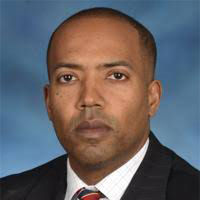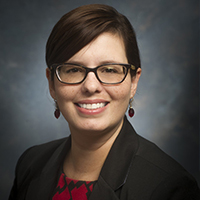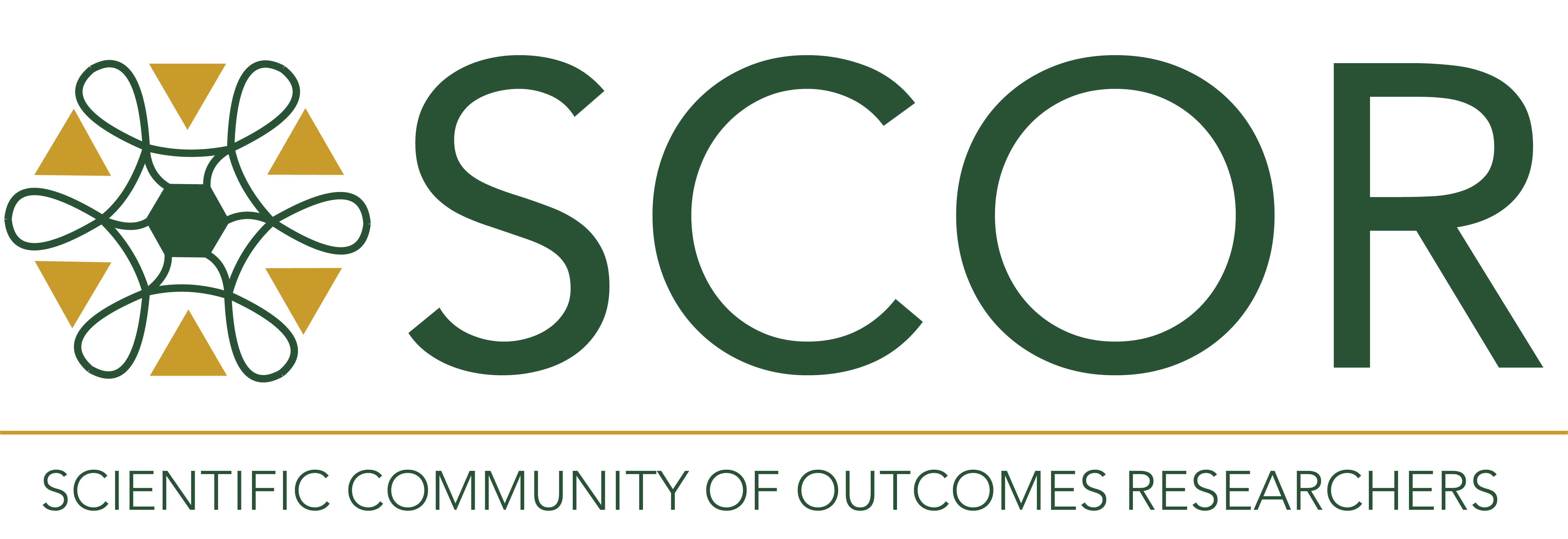2016

Stephen Gray, MD
Assistant Professor of Surgery
CCTS Scholar
University of Alabama at Birmingham
Liver transplant outcomes in response to structured exercise intervention

Mercedes Morales-Aleman, PhD
Assistant Professor of Community Health Sciences
CCTS Scholar
University of Alabama (Tuscaloosa)
Examination of multi-level factors associated with sexual health and healthcare access for adolescent Latinas in the South
*Deadline to apply has been extended to August 25, 2021.*
-
Program Description
Program Description
This is a one-year, cohort-based program is designed to enable junior faculty and director level staff to enhance their interpersonal skills, professional skills, and leadership skills. LEAD uses the Leadership Competency Model to provide the framework for the chosen topics.
The cohort meets face to face for 1.5-2 hours monthly to learn about themselves, to enhance their interpersonal effectiveness, to advance objectives through building quality teams, and to learn to drive change. In between the monthly sessions, participants will complete tasks they set as part of their goal setting activity. -
Learning Objectives
Learning Objectives
At the end of the year-long program, participants will be able to:- Demonstrate 5 areas their leadership improved
- Apply concepts to enrich their leadership and personal effectiveness
- Incorporate tools to enhance their management and measure effectiveness
- Implement strategies to continue to build leadership skills
-
Curriculum
Curriculum
Learn: 1st Quarter – Knowing Yourself as a Leader
Session 1: Program Orientation and Cohort Introductions
Session 2: Individual Assessment with DISC
Session 3: Emotional Intelligence
Enhance: 2nd Quarter – Enhancing Interpersonal Effectiveness
Session 4: Know Your Values
Session 5: Negotiation and Scientific Storytelling Skills
Session 6: Feedback and Difficult Conversations
Advance: 3rd Quarter – Building Teams
Session 7: Effective Listening and Communication
Session 8: Team Processes and Development
Session 9: Team Problem Solving
Drive: 4th Quarter – Facilitating Change
Session 10: Measuring and Evaluating Effectiveness
Session 11: Initiating and Driving Change
Session 12: Change Implementation -
Who should apply?
Who should apply?
Participants may be faculty or staff who are committed to enhancing their interpersonal and leadership skills. Each cohort will accept 15-17 participants who have the desire to be leaders within their organizations.
2021-2022 LEAD Cohort Application

The Translational Research Summer Series program provides precursory skill training for scientists and research professionals who are in the formative stages of their translational research careers. The Summer Series will create a foundation that will prepare students for success.
Series Description
The Translational Research Summer Series is a prefatory program for aspiring investigators and burgeoning scholars in translational research and provides key learning topics such as biostatistics, epidemiology, clinical trials, community research, and team science. Summer Series sessions are conducted by a distinguished group of faculty and senior leaders who bring an endless amount of knowledge and experience in translational research. Participation in the Summer Series allows each participant to implement key skills learned in each session to all facets of their academic and professional journey in research.
The 2024 Summer Series has concluded.
Session recordings are available on the CCTS Video Channel.
2024 Agenda
Click here to download| Date | Session Title | Presenter |
|---|---|---|
| June 5, 2024 3:30-4:30 PM |
What is Translation? (Intro) / Optimizing the Research Question | Jennifer Croker, PhD / Timmy Lee, MD |
| June 12, 2024 3:30-4:30 PM |
Study Design, Analytic Methods & Data Management / Introducing Clinical Trials | David Redden, PhD / George Solomon, MD |
| June 19, 2024 | Juneteenth Holiday Break - No session this week | |
| June 26, 2024 3:30-4:30 PM |
Epidemiology/Population – Public Health/EHR Data Access | Amanda Anderson, PhD/ R. Dale Johnson, MS |
| July 3, 2024 | Fourth of July Holiday Break - No session this week | |
| July 10, 2024 3:30-4:30 PM |
Team Science: Building Effective Translational Teams | Joel Dobbs, PharmD |
| July 17, 2024 3:30-4:30 PM |
Community-Engaged Research / D&I considerations at each Translational stage | Kimberly McCall, PhD / Larry Hearld, PhD |
| July 24, 2024 3:30-4:30 PM |
Spreading Your Message: Learning The Art of Scientific Writing | John Higginbotham, PhD |
| July 31, 2024 3:30-4:30 PM |
Been There, Done That: I Can Tell You All About The Journey | Carlos Cardenas, PhD / Samantha Martin, PhD |
Questions?
For more information about the CCTS Summer Translational Research Series contact: Ty Lucas |
Are you working on a K or R? If so, the Center for Clinical and Translational Science (CCTS) and the UAB Scientific Community of Outcomes Researchers (SCOR) invite you to apply to our Grant Writing Intensive Cohort!
What is the CCTS/SCOR Grant Writing Intensive Cohort (GRIT)?
Developed by SCOR and the CCTS, the Grant Writing Intensive Cohort (GRIT) offers scholars four months of highly structured weekly activities focused on specific steps in the grant application process. From NIH Specific Aims and Biosketches to training and budget plans, the GRIT cohort program will provide invaluable guidance and help keep you on track to meet your submission deadline.
How is GRIT Different?
 The first CCTS/SCOR K2R cohort: Crystal Chapman Lambert, PhD; Bertha Hidalgo, MPH, PhD; Christina Muzny, MD; and Tiffany L. Carson, PhD, MPH. CCTS Training Academy Co-Director Dr. Michael Mugavero and Program Director Dr. Becky Reamey stand behind the trainees.
The first CCTS/SCOR K2R cohort: Crystal Chapman Lambert, PhD; Bertha Hidalgo, MPH, PhD; Christina Muzny, MD; and Tiffany L. Carson, PhD, MPH. CCTS Training Academy Co-Director Dr. Michael Mugavero and Program Director Dr. Becky Reamey stand behind the trainees.
Unlike many grant writing groups, our program offers four months of highly structured weekly activities focused on specific steps in your grant application process. From NIH Specific Aims and Biosketches to training and budget plans, our cohort program will provide invaluable guidance and keep you on track to meet your submission deadline. Our structured and tailored timeline includes the following steps:
CCTS Nascent Project Panel
Specific Aims Workshop
Biosketch Workshop
BERD+ Consultation
Weekly Intensive Sessions Focused on Specific Grant Sections
CCTS Panels Done Quickly (twice)
Scientific Editing

Graphic Development
How to apply?
CCTS and SCOR welcome all students, trainees, postdocs, and early stage career faculty who are committed to dedicating weekly time and energy to apply to a cohort. Once accepted, applicants must secure $3500 in funding to match the CCTS investment, which underwrites scientific editing and graphic design services, event costs, one-on-one coaching, and the latest edition of The Grant Application Writer’s Workbook.
The CCTS seeks to develop a highly skilled clinical and translational research workforce well-prepared to collaborate, innovate, and accelerate the pace of scientific discoveries. The goal? To more effectively turn research insights into better health for the populations we serve.
With support provided by our funder, the National Center for Advancing Clinical and Translational Science (NCATS), the CCTS Training Academy offers two different formal clinical research training awards—both combine formal course work with direct research experience and are grounded in the national competencies established by NCATS to prepare clinician-scientists for success on multidisciplinary, translational research teams.
-
Deep South Mentored Career Development Program (K Award)
This program provides formal research training experience to scholars who already have an MD, PhD, or equivalent doctoral degree. CCTS K scholars focus on research addressing diseases and health disparities that disproportionately affect the Deep South. The benefits are many and include salary support, lead-author manuscripts, and an extramurally funded research grant submission.
-
Postdoctoral Dissemination and Implementation (D&I) Science Program (T Award)
This program introduces post-graduate trainees with an MD, PhD, PharmD, DDS, DMD, DVM, etc. to concepts of D&I science to improve and broaden the impact of equitable translational research in the Deep South. Our immersive program provides 24 months of protected time and other support for postdocs to complete the core curriculum and mentored research.
-
Predoctoral Clinical/Translational Research Program (T Award)
This program introduces trainees who are finishing their second year in a health-related professions program (MD, PhD, PharmD, DDS, DMD, DVM, etc.) to clinical and translational research. Our immersive program provides 12 months of protected time for T trainees to complete the core curriculum, get experience writing a manuscript, and present their findings at a national conference.
The CCTS Training Academy offers an extensive menu of interdisciplinary educational programs and enrichment activities suitable for wherever you are on the career arc—from graduate student to senior faculty—as well as for research team and community members.
To find out about the latest learning opportunities as soon as they are announced, subscribe to CCTS Digest and check our Events and Recurring Events web pages.



